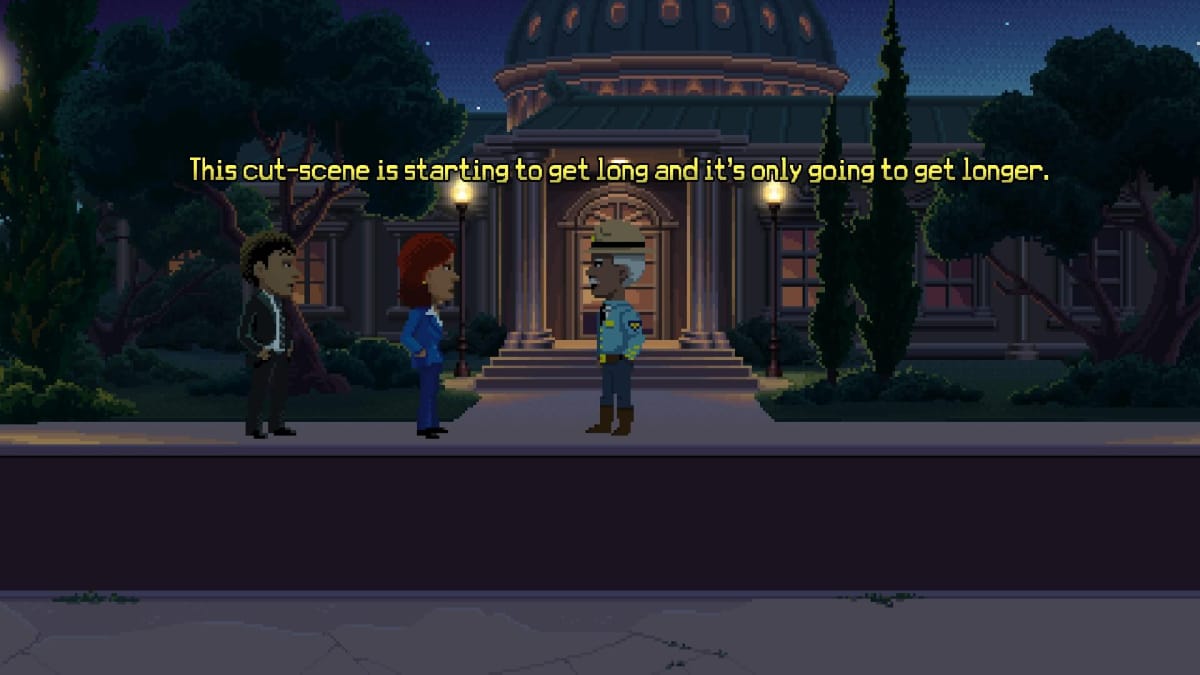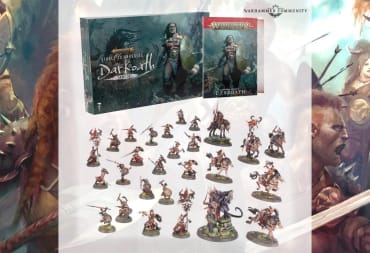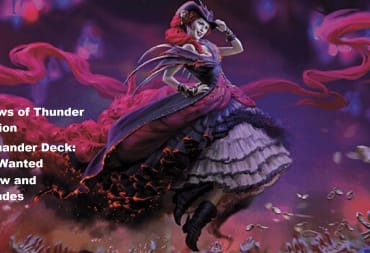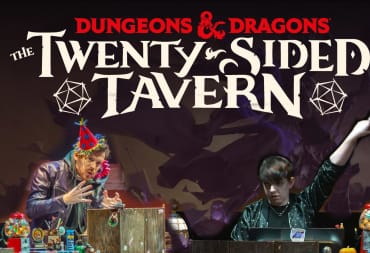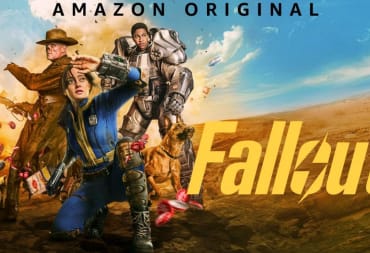In most forms of media, the audience is not considered part of the performance. Whether it be in books, theater, film, or video games, the consumer is normally separated by a barrier known as the "fourth wall." Characters and performers act as though this fourth wall is an impenetrable force, and that the audience beyond does not exist.
Sometimes, a form of media distances itself from this concept. Films may directly address the people watching them with a sly wink and a nudge. In art, many examples can be found in Pere Borrell del Caso's works, the most famous perhaps being Escaping Criticism (1874). A simple example of breaking the fourth wall in games comes in the form of tutorials. Sometimes these messages are just text or visuals on the screen. Other times, however, even characters in the universe will discuss concepts such as buttons, health bars, and other things that would be invisible or nonsensical to them. The intended message isn't actually for the character's benefit, but for the player's.
There are many reasons that breaking the fourth wall appeals to people. It can be used for self-referential or self-deprecating humor, blur the lines between fiction and reality (like in alternate-reality games), or create a sense of unease in the audience. TV shows and theatre performances that allow audience participation make people feel more involved. A fourth wall can even develop and be broken through media that was never intended to have audience participation (such as MST3K lampooning films or The Rocky Horror Picture Show with its infamous public screenings).
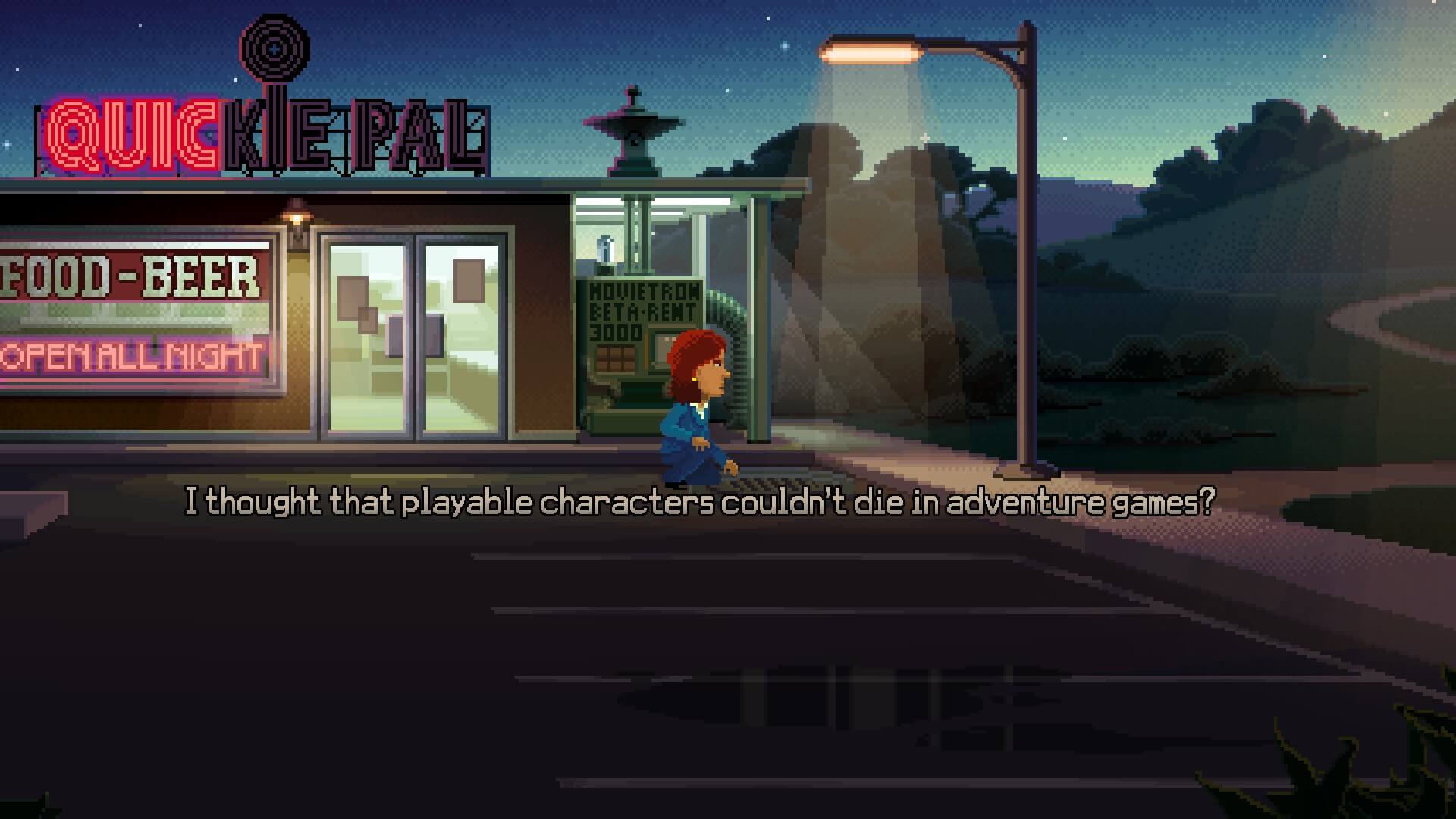
In more extreme cases, the fourth wall is abolished entirely for dramatic or comedic effect. Here are some games that abandon that pretense. Be very aware of spoilers for the following games: The Stanley Parable, Thimbleweed Park, Delores: A Thimbleweed Park Mini-Adventure, Doki Doki Literature Club!, Eternal Darkness: Sanity's Requiem, and Star Ocean: Till the End of Time. While most minor incidents of breaking the fourth wall equate to a quick gag, these games are different. Characters in each title must confront painful truths beyond the fourth wall, its existence either galvanizing them or driving them to madness.
We know that the characters' quests for true free will are all pointless, even though the characters do not; it's a case of dramatic irony. Dramatic irony is a literary trope where the audience is aware of more things than the characters in the story, and it goes back all the way to ancient theater in Greece. We know that these quests for freedom and determinism are just part of a script, and ultimately futile, playing it for dramatic effect. Some of the appeal of acknowledging the fourth wall may then stem from having to confront these uncomfortable great questions and truths about our own lives. Video games offer escapism, but have also been used to explore the human condition through a variety of cultural lenses. Stories of the power of friendship are everywhere in JRPGs, contrasted with more individualist Western RPGs. Many pieces of media end up accidentally (or deliberately) taking on values held by their creators, from games to film to folklore and oral traditions. Nods to the player through the fourth wall can reinforce these values.
What these titles have in common is how they change power dynamics and the narrative structure. They each draw the player in as their own separate entity in the game world, something distinct from any avatar or avatar they control. In essence, we "become" our own character. It changes our preconceived role of "looking, and controlling, but not directly touching," and it often forces us right into the story as an active participant. Some (Doki Doki Literature Club!) are more direct, while others take on a more existential cast (Star Ocean). Some could say that all games break the fourth wall by virtue of being an interactive medium, but not all bring up the existential in such a blatant way. These games do more to make the players navel-gaze and think about the consequences and shock of being confronted with such a change to their concept of reality.
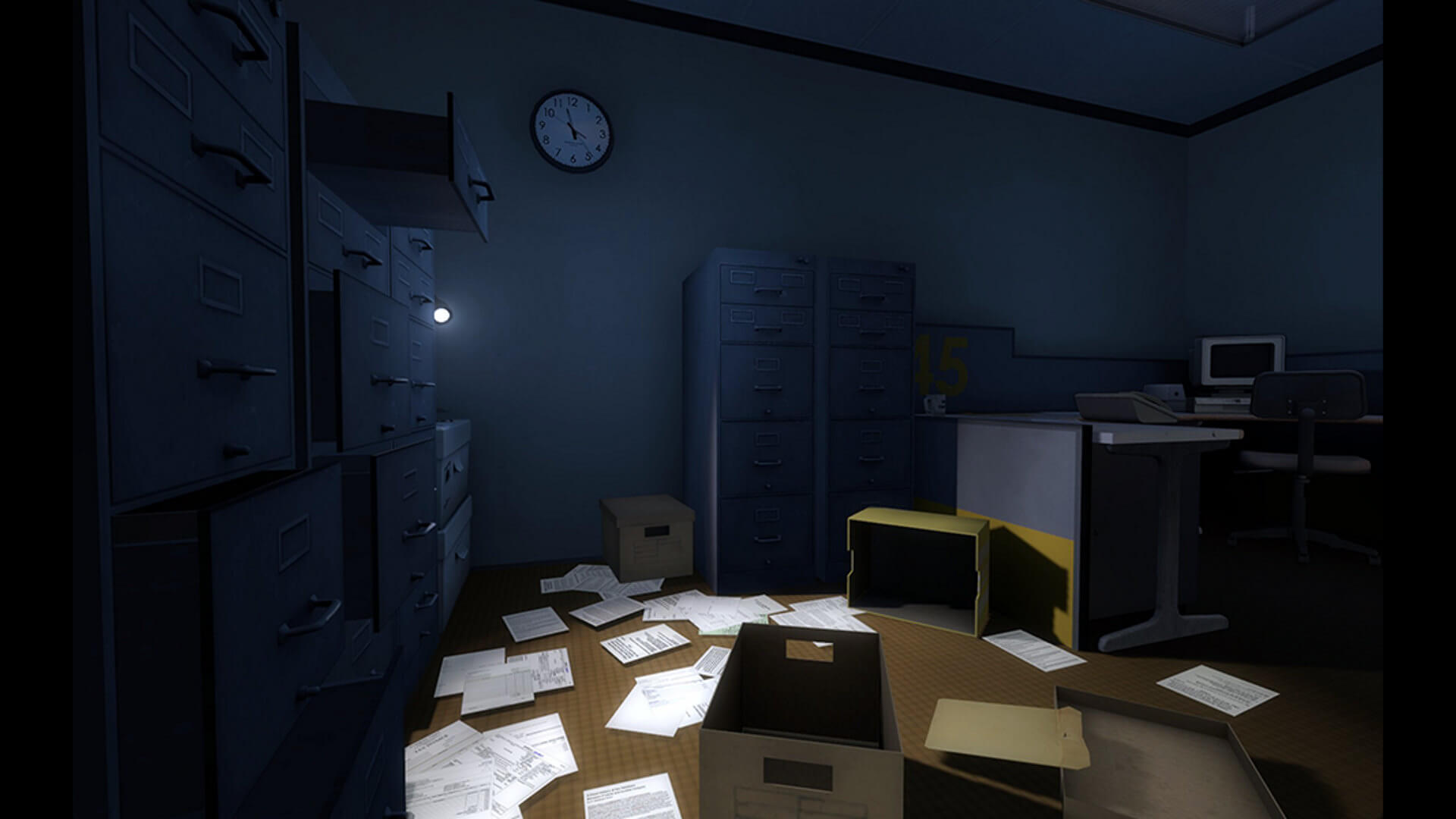
The Stanley Parable: Breaking the Fourth Wall for Comedy and Drama
Perhaps one of the best-known examples of fourth-wall breaking in recent memory is The Stanley Parable. featuring many, many different endings depending on player decisions, The Stanley Parable deliberately screws with the player's mind. Obeying the voice, stripping the player of agency, will get you a decent ending. Going off the rails, however, can succeed or backfire tremendously.
The concept of free will is brought into question. We, as the player, can choose to adhere to or disobey the voice's instructions. Any agency we give up is willing, and part of the game. Stanley, the protagonist, has little agency and is subject to the player's actions. The Broom Closet "ending" even suggests handing over control to another human being. We can even remove our ability to control Stanley, our avatar, and view him in third person in one ending. This creates a distance between the player behind the screen and Stanley. The Narrator even comments that we aren't Stanley. After separating ourselves from Stanley, the Narrator will plead with him to do something, though Stanley lacks the autonomy to do anything without an entity to control him.
Of course, this is all part of the game. It is programmed and designed specifically to allow us to do these things. Players can follow a specific set of prompts and instructions written by others to achieve the ending they desire. We become a "character" in the sense, but there are still only so many things we can do to impact the world in The Stanley Parable. The dev team has thought of many clever scenarios, including the possibility of players cheating, but we cannot fully map the spread of human determinism and narrow it down to simple choices. Not yet, in any case.
The Stanley Parable evolved from a 2011 Half-Life 2 mod into its own standalone game. If you're looking for a mind screw, it's a great choice. The Stanley Parable: Ultra Deluxe is expected later this year, featuring new endings and decisions for the player (and by extension Stanley) to make. The Stanley Parable is available on Steam, and the Ultra Deluxe version expects to come to consoles upon its release.
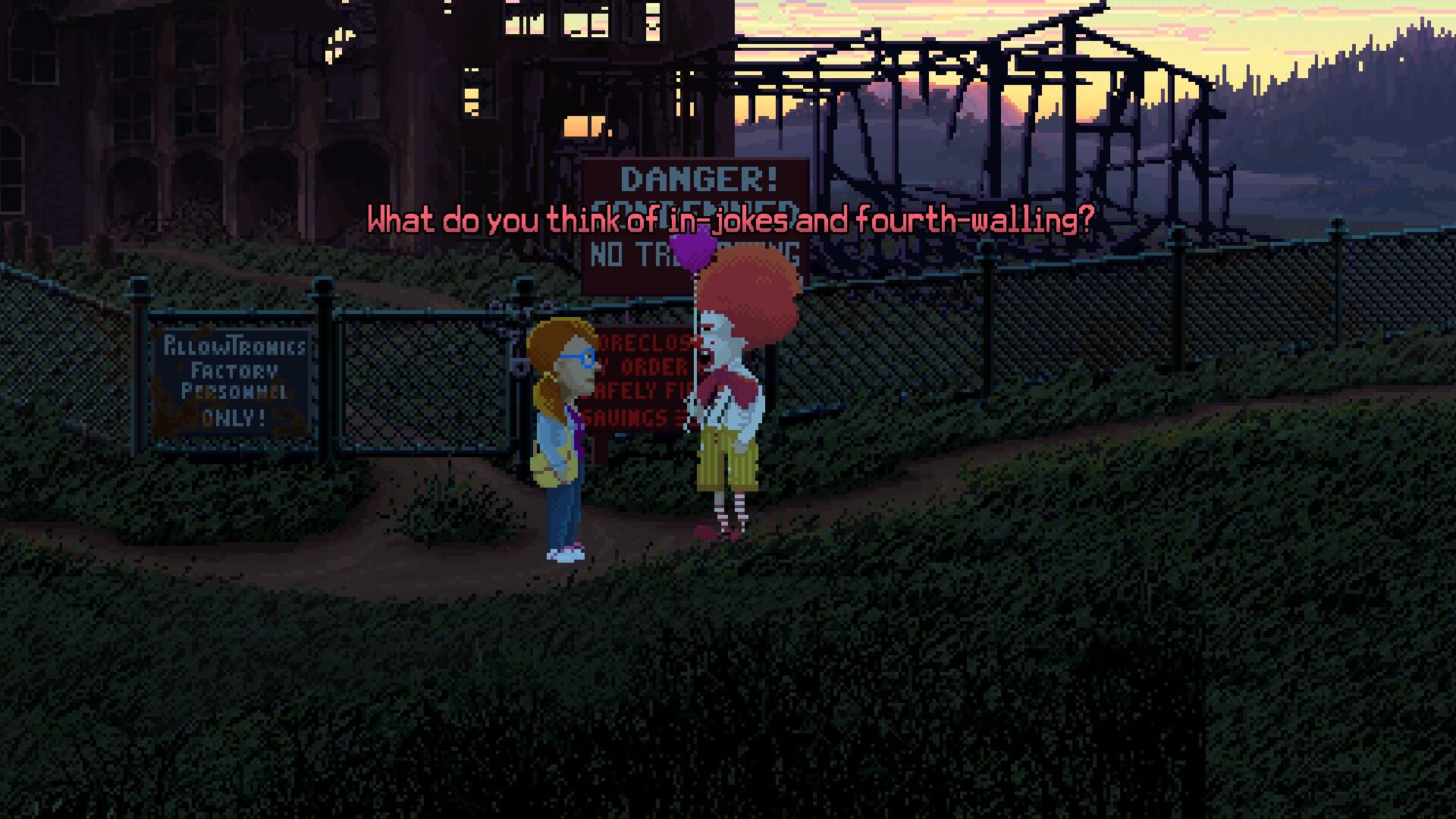
Thimbleweed Park: Annihilating the Fourth Wall for Comedy and Drama
Developed by Terrible Toybox and led by adventure game industry veterans Ron Gilbert and Garry Winnick, Thimbleweed Park features lots of breaking the fourth wall and industry in-jokes. In fact, the in-jokes were so prevalent that a self-deprecating option to tone down the "annoying in-jokes" was implemented in a later patch. All of the playable characters (and many NPCs) comment on adventure-game tropes, such as red herrings and items being useful "at the end of the game." Delores, perhaps the main character, even attempts to get a job at MMucasFlem designing adventure games, an obvious parody of LucasFilm.
Ostensibly, Thimbleweed Park is about attempting to solve a mysterious murder in the titular town of Thimbleweed Park, but by the last few chapters it goes off the rails entirely. The main characters become aware that Thimbleweed Park is a game and attempt to do things like come to terms with their reality, escape, and perform their swan songs.
This awareness is juxtaposed by the fact that the characters are still in a video game and subject to the player's orders. They don't stop obeying the player just because of their awareness. Do they have free will and agency even as we, the player, guide them on their journey and have them stop the cycle of rebooting the game and living it over and over again? This derailing of Thimbleweed Park supposedly gives the characters their freedom, but the audience (and player) cannot verify that. The ending credits suggest that the game is being rebooted. Was this quest for free will just part of the plan? The player doesn't become directly involved, but a comment by one of the characters brings up that there is a single house in Thimbleweed Park. 80 people live in the town. The phone book has hundreds of names (featuring real-world backers from their crowdfunding campaign). Things that, on a cursory examination, simply seem odd gain new, significant meanings as the game progresses. Many have compared Thimbleweed Park to Twin Peaks, and for good reason.
Delores: A Thimbleweed Park Mini-Adventure further muddies the waters. Released May 2020, Delores has flashbacks to the "real" Thimbleweed Park throughout gameplay as she explores the town one year after the incident. Ransome the *Beep*ing Clown appears once the player has completed the game, saying he had something to do with the façade. He mentions that the strange events could be chalked up to his "hacked savegame," telling Delores that she wasn't supposed to see through to "this side." Delores and Ransome agree to work together, and the short game rolls credits with the "DeloresRansomePatch" loading in the background.
Thimbleweed Park plays breaking the fourth wall both for comedy and drama. If you happen to like the 1987 adventure game hit Maniac Mansion, then consider picking it up. It's on just about everything: Steam, GOG, Xbox One, PlayStation 4, Nintendo Switch, and iOS/Android devices.
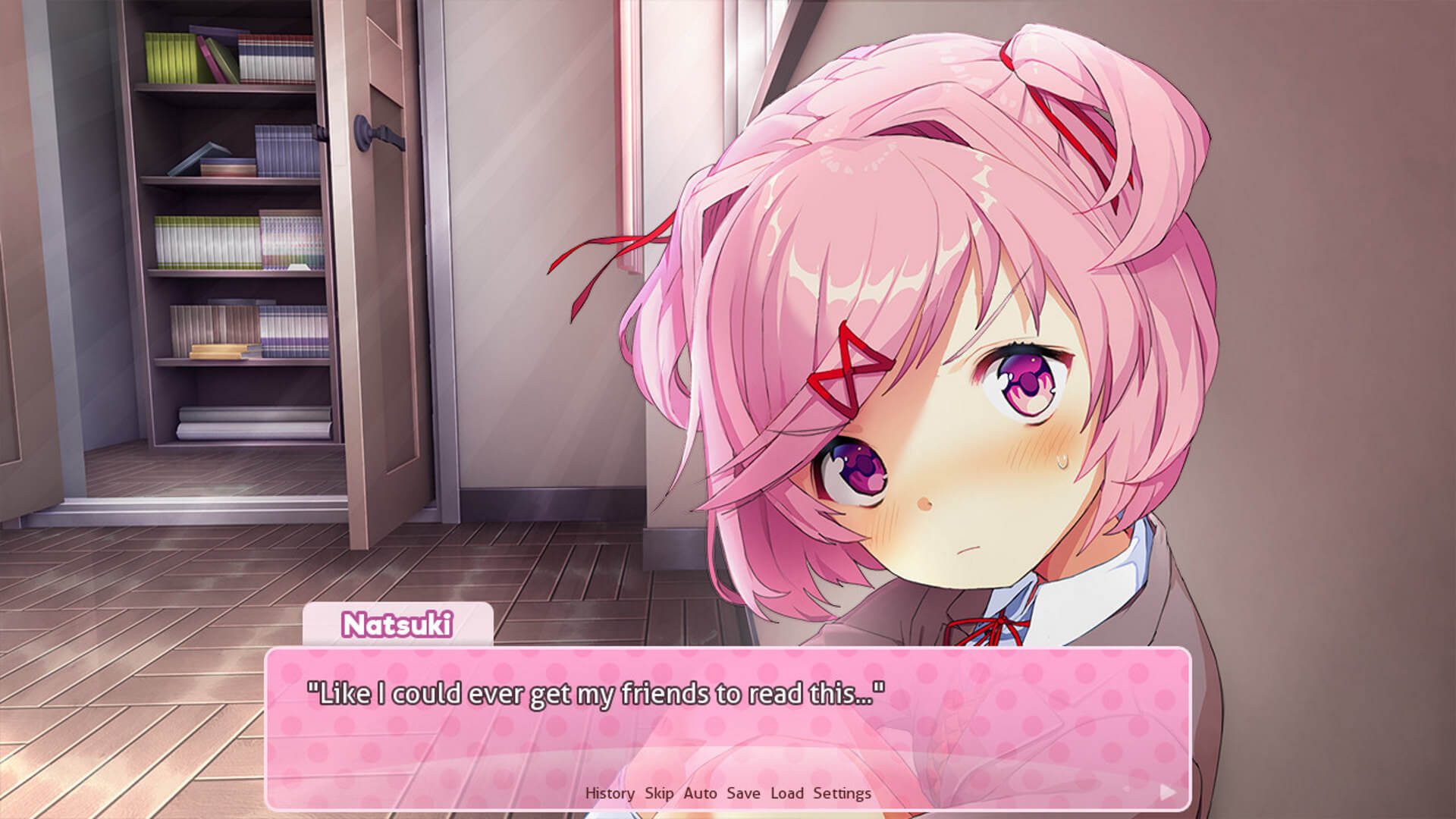
Doki Doki Literature Club!: Fourth Wall and Horror
Visual novels offer an interesting medium for interaction. Most of the time, especially in romance-oriented games, the player behind the screen and the avatar presented in-game is intended to be the same person. Doki Doki Literature Club! uses the Ren'Py visual novel system, a free software and game engine where you, too, can engage in a Gordon Ramsey/Paula Deen dating sim.
Doki Doki Literature Club! starts as a fairly standard dating simulator. The player meets four girls through their high school literature club. Each has their own tastes in poetry, and the player can romance Sayori, Natsuki, or Yuri. Club President Monika, however, is not available. As the game progresses, it quickly flies off the rails and the player experiences the lurking madness firsthand.
By going through the game's files, the player can manipulate events. The "deleted" girls vanish, effectively gone forever. All of the other characters appear to forget about them. On a meta level, the player is aware of their absence, but the player avatar is not, as he is not omniscient. This is all part of the story, the loss of the characters played both for drama and existential horror. When Sayori takes over the poetry club from Monika in Act 4, we can see that the position of Club President itself seems to be cursed.
Through changing these files, we, the player, regain our sense of agency. With tactics such as save-scumming, we can alter the course of the story. The player avatar himself never gains any special awareness or meta knowledge, but we as the player behind the screen distance ourselves from the featureless protagonist. Monika is obsessed not with the protagonist, but with the player. Doki Doki Literature Club! is available for free on Steam.
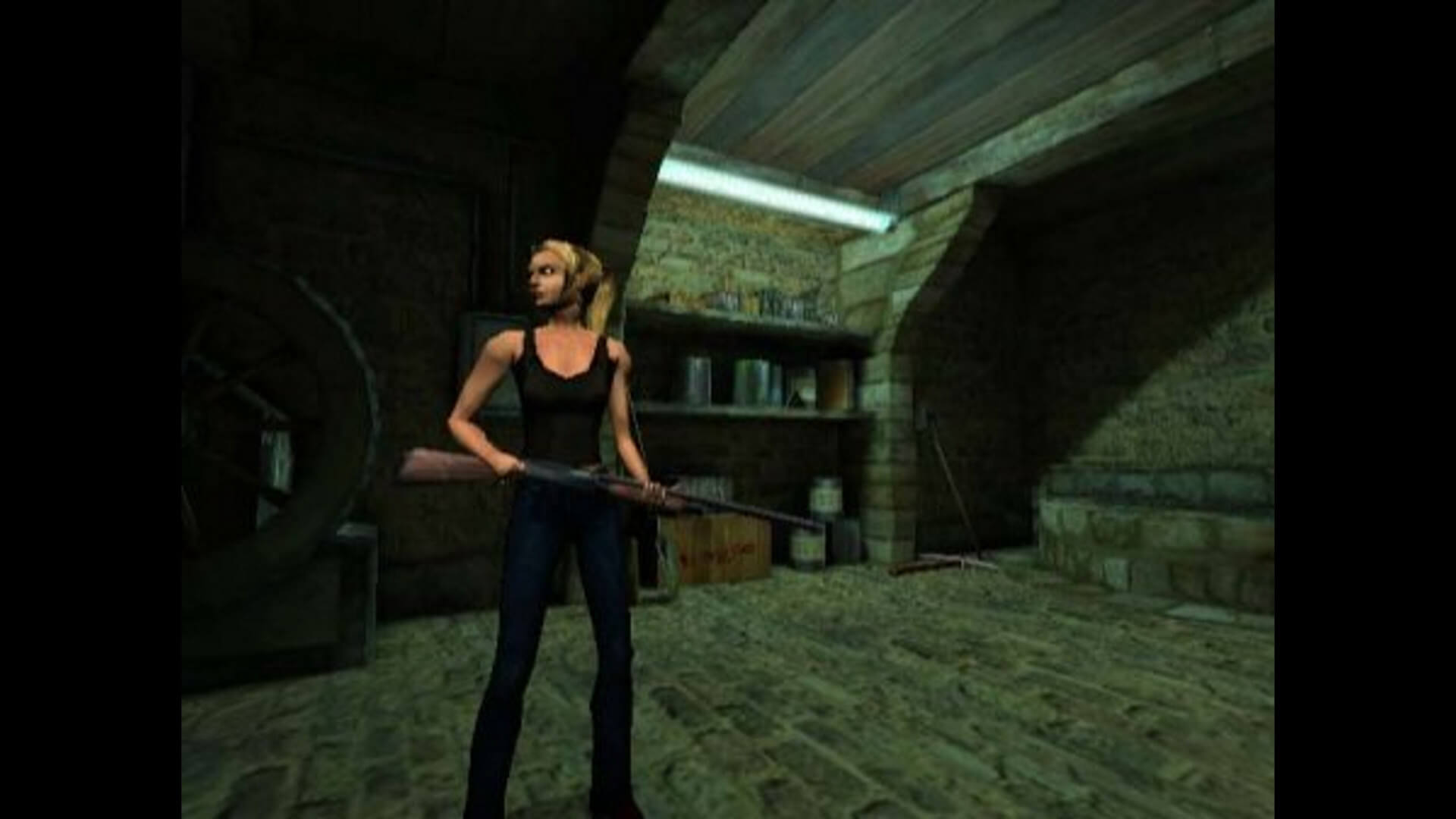
Eternal Darkness: Sanity's Requiem: Fourth Wall and Mind Games
Silicon Knights developed the 2002 action-horror classic Eternal Darkness: Sanity's Requiem, a title known for its unique "Sanity Effects." Taking control of a variety of characters, each chapter in the Book of Eternal darkness spells new doom and gloom. Horrors (and other nefarious creatures) test their bodies, magickal might, and their very grip on reality. As their sanity drops, strange things happen to make the character question their senses. Characters babble incoherently, strike at air, and even stab themselves with their weapons if left idle with low sanity. Players needed to manage the Sanity Meter through gameplay, as an empty Sanity Meter changed any sanity damage suffered into health damage, instead.
This is little compared to the effects the characters don't see, but the player does. The screen can fill with bugs that skitter about. Your TV might appear to turn off, or the AV cable can seem to come unplugged, or a blue screen crash might "occur." Eventually, the screen flashes and the character will cry out something like, "This isn't really happening!" These Sanity Effects are more believable with older TVs, but it can still come as a shock to see it for the first time. Your character will still scream and shout that it isn't real, suggesting they may be aware of the fourth wall on some level. There's still the infamous Sanity Effect where, after saving your game, Eternal Darkness offers to delete your data on your GameCube memory card, cheerfully faking doing so regardless of your response. Though it has not received a sequel or remaster, you can pick up a used copy online pretty easily.
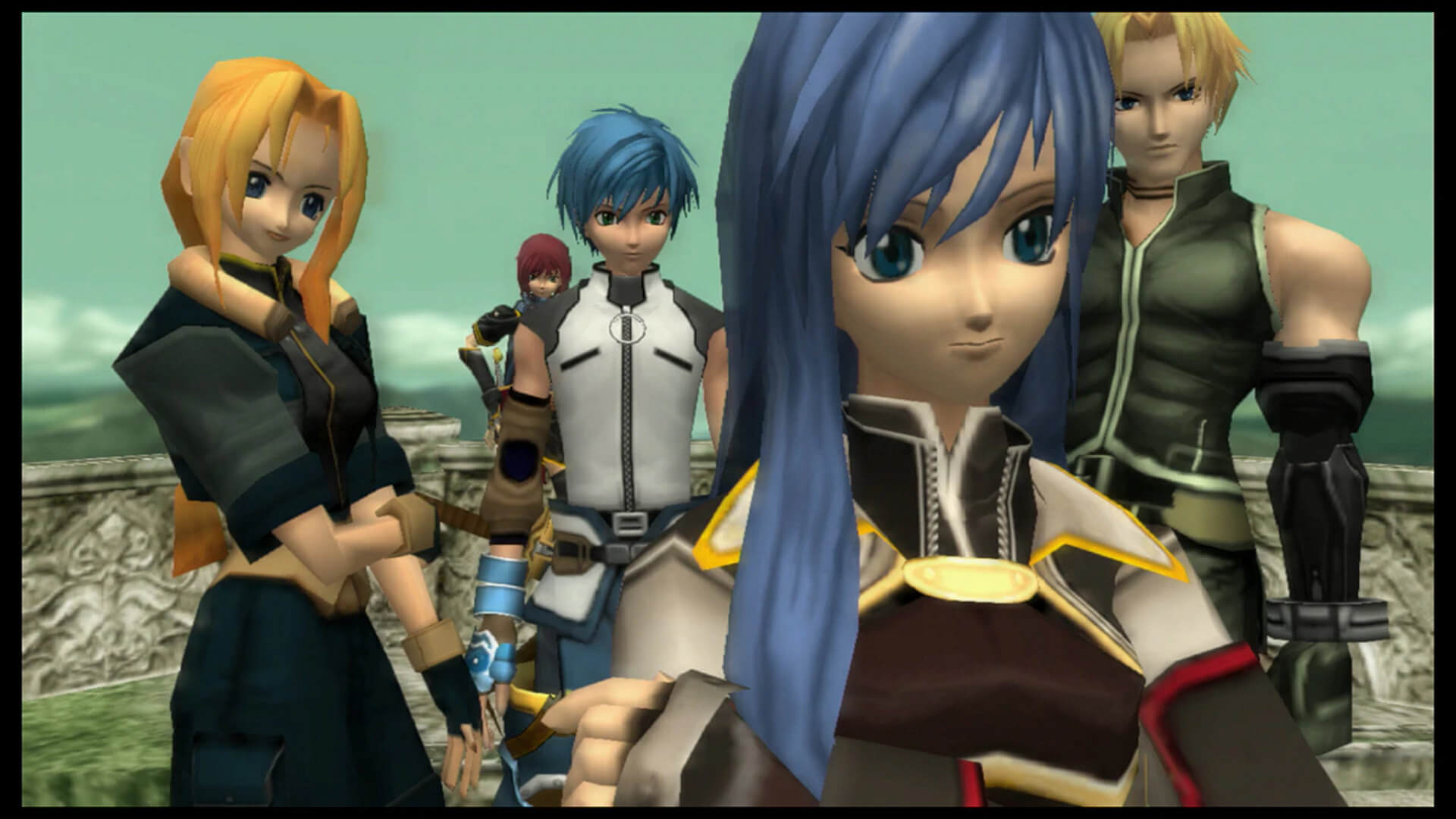
Star Ocean: Till the End of Time: Partially Breaking the Fourth Wall
Throwing its fans into quite a loop on release, this Star Ocean game massively changed the metaplot for the Star Ocean series. At first, it seems like a standard, anime-inspired sci-fi RPG, but after its infamous plot twist midway through the game, Star Ocean: Till the End of Time hops onto a roller coaster of emotions.
The characters of Star Ocean: Till the End of Time realize they are characters in a simulation game called Eternal Sphere, run by a shadowy corporation existing in a dimension above theirs. It's like if creations made in The Sims gained awareness and wanted to kill their cruel gods. Fayt and his friends rail against their creators. It turns out that Eternal Sphere was becoming increasingly buggy, suggesting the self-awareness was a side effect of bad programming. Still, they respond to the player's commands like normal, and do not gain any awareness of the real corporation behind their existence (RPG developer tri-Ace, also responsible for Valkyrie Profile and Resonance of Fate).
This plot twist colors the whole series, leaving fans of Star Ocean split on what it means for not only Till the End of Time but for every other title. If you want to experience it for yourself, a remaster came out on the PlayStation 4 in 2017, or you could track down a PlayStation 2 copy.
That's all for the fourth wall. We here at Techraptor will continue to ponder if we, ourselves, are in a simulation playing simulated games with our simulated time.
Have a tip, or want to point out something we missed? Leave a Comment or e-mail us at tips@techraptor.net
